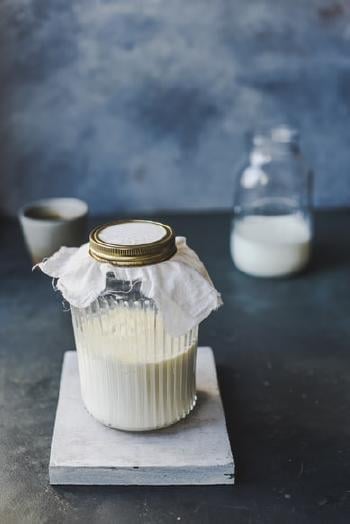
Have you ever heard about probiotics? Are they already in our body? Or just in some food? Why are probiotics good for you and your body? Which are probiotics' health benefits? Are we what we eat? Learn Why Probiotics are good for you? Learn their Health Benefits. Let´s see!
Here we will try to give you a definition for probiotics. Probiotics are beneficial bacteria that live in the intestine and improve the overall health of the body, bringing benefits such as facilitating digestion and nutrient absorption, and strengthening the immune system.
You can read more about probiotics' health benefits in The ABC of Probiotics: What are they? and Why are they good?
When the intestinal flora is not in balance, which often happens after the use of antibiotics or when you do not have a healthy and balanced diet, the intestine ends up being populated by bad bacteria, which do not help the immune system and leave the body susceptible to diseases. Probiotics are also foods or supplements containing live microorganisms intended to maintain or enhance the body's "good" bacteria. Eating these types of food will assure you of the probiotics' health benefits.

The main probiotics' health benefits are:
Besides probiotics' health benefits, they could even help improve conditions such as autism, as some studies seem to indicate that there are improvements not only at the gastrointestinal level but also at the behavioral level, improving the ability to concentrate and listen. So, there´s plenty of beneficial causes to add probiotics to your life and diet.
You can learn more in Are probiotics good for you? Know their benefits here
There are two main ways to ingest probiotics and earn probiotics' health benefits: through increased consumption of foods that are considered natural probiotics, such as yogurt or kefir, for example; and the other way is through the use of probiotic supplements

In addition to this, some cheeses may also contain live cultures of microorganisms with probiotics' health benefits, and it is important to read the nutritional labeling to confirm whether or not this type of cheese contains these bacteria.
Experts say that to maintain healthy intestinal flora, it is advisable to consume at least 1 probiotic source food per day, especially after the use of antibiotics that end up affecting the healthy intestinal flora. An apple a day keeps the doctor away, and a kefir a day guarantees probiotics' health benefits. That's not a rhyme, it's a fact!
In addition to food, probiotics can also be consumed as supplements and there are several presentations: capsules, liquids or sachets, which must be diluted in water or natural juices to be consumed.
You will find many commercial names, all of them containing the right amount of probiotics' health benefits.

There are several types of supplements, which include between 1 to 10 different types of probiotics. The most important are usually:
The greater the diversity of probiotics, as well as the number of bacteria within each tablet, the better the supplement will be and the better the probiotics' health benefits, as it will facilitate the balance and faster development of a healthy intestinal flora.
It is recommended that the supplement has between 2 to 10 billion active bacteria, being important to read the label of the product that should indicate the amount of organisms per dose, what type of bacteria it has because it is important to choose the one that is best according to the problem to be treated and in what dose it should be taken.
It is important to try the supplement for about 4 weeks, if there is no improvement during this period, the ideal would be to try a different supplement. Probiotics should be ingested before or after a meal, so that the food helps the bacteria to survive the gastric acid and reach the intestine, where they can multiply more easily.
It is important to remember that in addition to the consumption of probiotics in the form of supplements or foods rich in these bacteria, it is also important to maintain a healthy diet rich in fiber, since fiber is the main food for probiotics, favoring their survival in the intestine.
While probiotics are healthy bacteria that inhabit the gut, prebiotics are fibers that serve as food for probiotics and promote their survival and proliferation in the gut.
Some examples of natural prebiotics are oats, onion, garlic, green plantain and green plantain biomass.
So, there is no doubt about how good probiotics are. They are in our body but consuming supplements or foods rich in them helps our body maintain balance and give us the best it has every day. Have you already chosen how to consume them?
You may be interested at: Why Doing Yoga 15 Minutes a Day Could Change your Life?